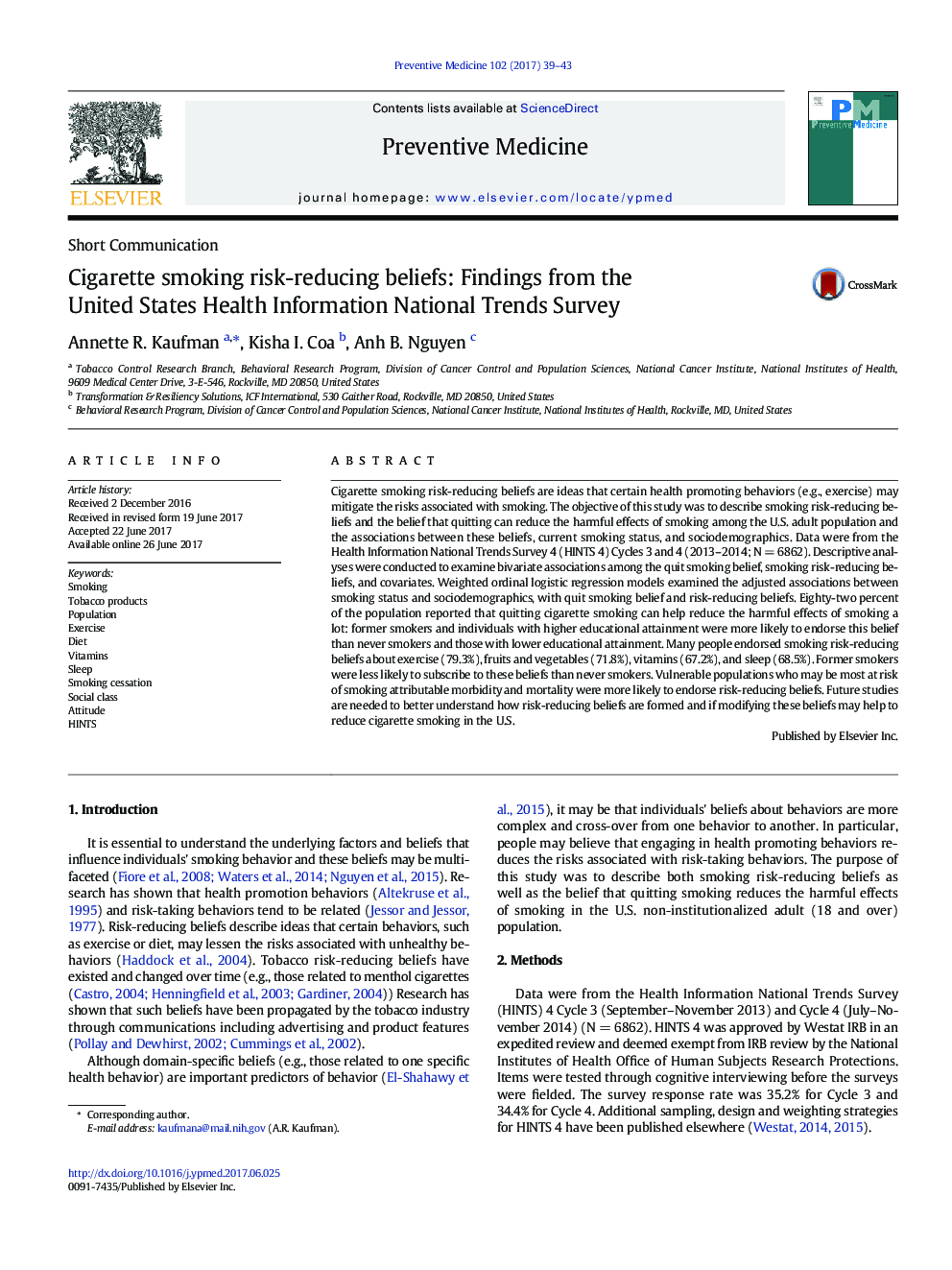| کد مقاله | کد نشریه | سال انتشار | مقاله انگلیسی | نسخه تمام متن |
|---|---|---|---|---|
| 5635579 | 1581612 | 2017 | 5 صفحه PDF | دانلود رایگان |
- Smoking risk-reducing beliefs suggest healthy behaviors mitigate smoking risks.
- A high prevalence of US adults endorse cigarette smoking risk-reducing beliefs.
- Former smokers are the least likely to subscribe to risk-reducing beliefs.
- Significant differences emerge in risk-reducing beliefs by vulnerable populations.
Cigarette smoking risk-reducing beliefs are ideas that certain health promoting behaviors (e.g., exercise) may mitigate the risks associated with smoking. The objective of this study was to describe smoking risk-reducing beliefs and the belief that quitting can reduce the harmful effects of smoking among the U.S. adult population and the associations between these beliefs, current smoking status, and sociodemographics. Data were from the Health Information National Trends Survey 4 (HINTS 4) Cycles 3 and 4 (2013-2014; NÂ =Â 6862). Descriptive analyses were conducted to examine bivariate associations among the quit smoking belief, smoking risk-reducing beliefs, and covariates. Weighted ordinal logistic regression models examined the adjusted associations between smoking status and sociodemographics, with quit smoking belief and risk-reducing beliefs. Eighty-two percent of the population reported that quitting cigarette smoking can help reduce the harmful effects of smoking a lot: former smokers and individuals with higher educational attainment were more likely to endorse this belief than never smokers and those with lower educational attainment. Many people endorsed smoking risk-reducing beliefs about exercise (79.3%), fruits and vegetables (71.8%), vitamins (67.2%), and sleep (68.5%). Former smokers were less likely to subscribe to these beliefs than never smokers. Vulnerable populations who may be most at risk of smoking attributable morbidity and mortality were more likely to endorse risk-reducing beliefs. Future studies are needed to better understand how risk-reducing beliefs are formed and if modifying these beliefs may help to reduce cigarette smoking in the U.S.
Journal: Preventive Medicine - Volume 102, September 2017, Pages 39-43
